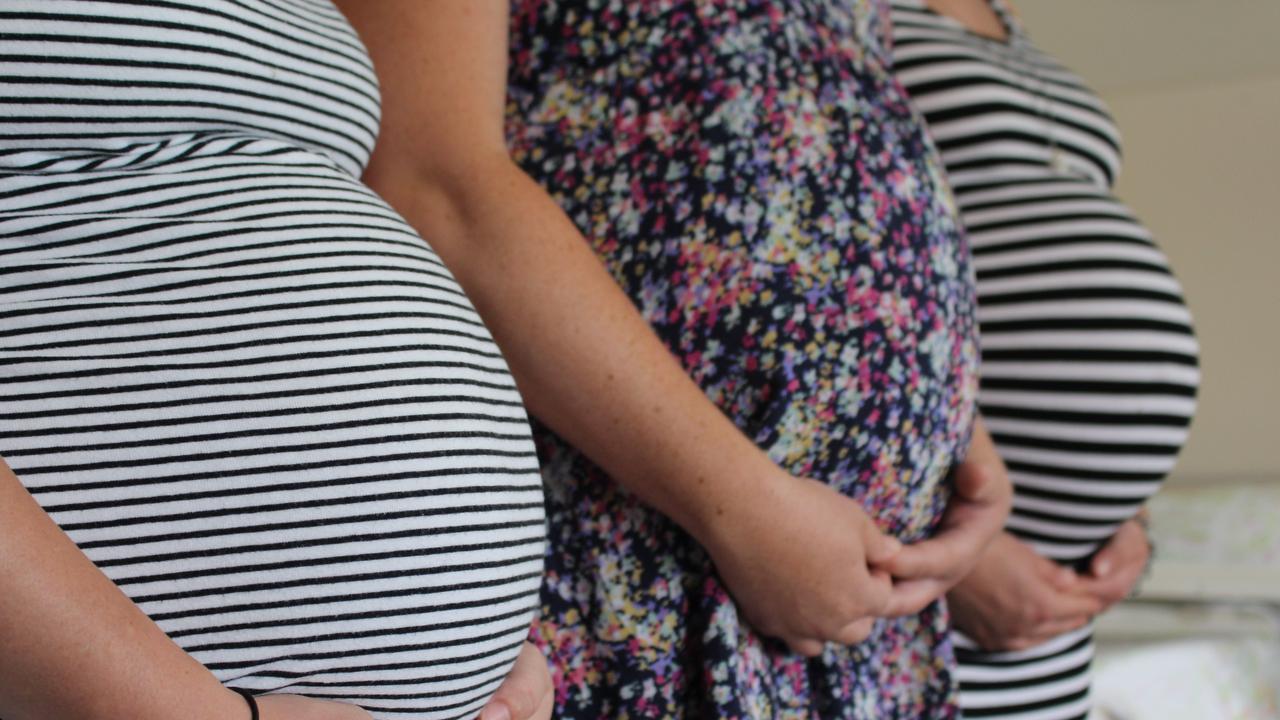Proud parents who post photos of kids on social media warned to be careful of the consequences
PARENTS creating Facebook and Instagram accounts for their kids are letting them in for unintended consequences.
Kids
Don't miss out on the headlines from Kids. Followed categories will be added to My News.
PARENTS are being urged to set a good example for their children on social media and think twice before posting those embarrassing photos of their kids or risk possible legal consequences.
Cyber safety specialists are concerned by a growing number of Instagram and social media accounts being created by parents on behalf of their babies and young kids.
Some innocent photos of children posted to sites such as Facebook by doting parents are being discovered among the collections of online child predators, and lawyers warn there could be legal repercussions for parents posting photos of their kids online.

In Austria, an 18-year-old woman is suing her parents for a string of embarrassing photos they posted of her on Facebook, including naked baby photos and toilet-training shots, alleging they were a breach of her privacy.
Defamation lawyer Jeremy Zimet, of Slater and Gordon, said it was possible a similar legal case could be brought to the courts by a disgruntled Australian teenager.
While Australian law does not recognise a specific right to privacy, Mr Zimet said it was possible a civil case could be mounted by someone against their parents under breach of confidence provisions.
“The way in which the law deals with online content and social media is radically changing, it isn’t fixed or stagnant, and there will always be new or novel cases brought before the courts,” Mr Zimet told The Sunday Mail.
“It may be arguable that a breach of confidence applies in these cases, and that the photos were intimate and they were taken in a situation where the person featured was not able to provide consent.”
It was understandable that a parent would want to share photos of their children growing up, but they should take a cautious approach to posting.
“The best approach for people seeking to publish similar types of images online is to take a respectful approach, ask permission before positing, and respect the wishes of your child if he or she says they do not want that image posted,” Mr Zimet said.
The lawyer also warned parents to be careful when it came to posting images of other people’s children.

PROUD PARENTS LOVE TO SHARE
SHARING family photos on social media is the modern equivalent of the traditional album without the hassle of physical prints, one online-savvy mum says.
Naomi Lynn says she happily shares photos of her two boys, Mason and Hunter, on Facebook and Instagram as a way of documenting their lives and keeping interstate family members updated. “I’m not a spammer when it comes to oversharing, but I also don’t hesitate about posting nice personal photos,” she says.
Ms Lynn hopes her children will enjoy looking back at photos of themselves without having to search through boxes of old prints.
“I would have loved something like that for me,” she says.
“If I want to see photos from when I was a child, I’d have to find the prints somewhere. With social media, all the photos are in an automatic timeline and you can see comments and likes, so it’s a way of preserving a detailed history.”
Ms Lynn says she would never share inappropriate photos of her children, and she hopes the next generation appreciate their parents’ efforts to document their lives.
“I’m sure they’ll love having all those digital files to look back on.”


